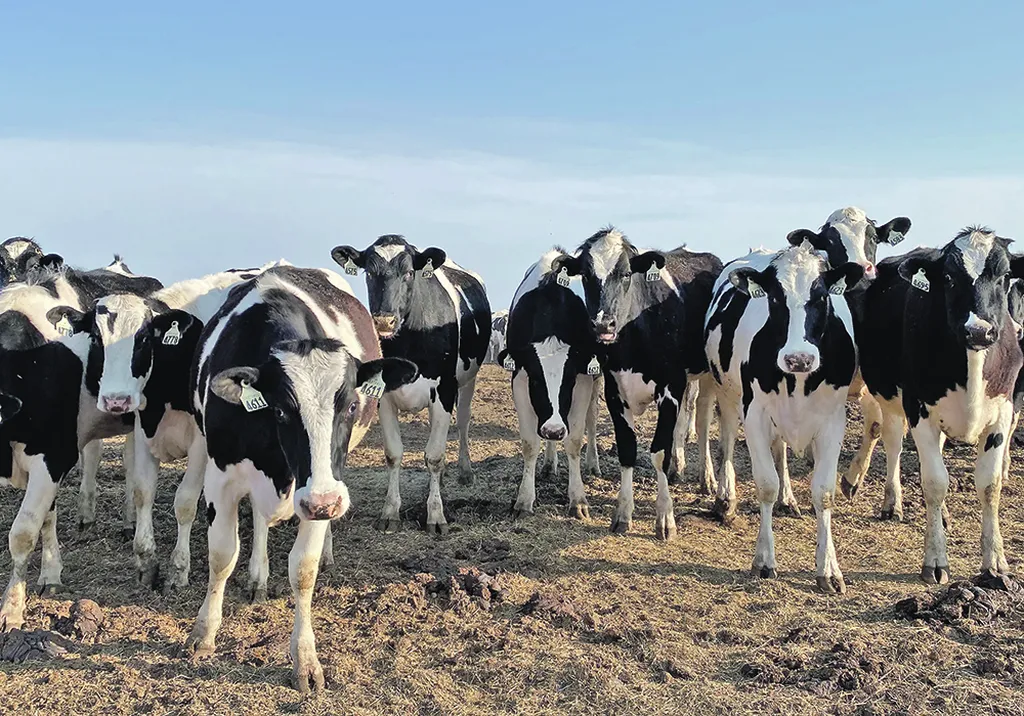In a significant stride towards sustainable livestock management, researchers have identified a promising probiotic that could revolutionize the treatment of bovine endometritis, a common postpartum uterine infection in dairy cows. The study, published in *Frontiers in Veterinary Science*, focuses on Lactiplantibacillus plantarum CRS33, a novel probiotic strain isolated from the uterus of a healthy cow. This discovery could offer a much-needed alternative to antibiotics, which are increasingly facing the challenges of antimicrobial resistance and treatment failure.
Bovine endometritis is a prevalent issue in dairy farms, often leading to reduced fertility and productivity. Traditional treatments rely heavily on antibiotics, but their overuse poses risks to both animal and human health. The lead author of the study, Mingchao Liu from the College of Animal Science and Technology at Hebei Agricultural University, explains, “Our goal was to explore a safer and more effective treatment option that could mitigate the reliance on antibiotics.”
The research team conducted whole-genome sequencing of Lactiplantibacillus plantarum CRS33 to identify genes related to antibacterial, anti-inflammatory, and immune-regulatory activities. They confirmed the absence of antibiotic resistance and virulence genes, ensuring the safety of the probiotic strain. The study then evaluated the anti-inflammatory effects of Lactiplantibacillus plantarum CRS33 in a mouse model of Escherichia coli-induced endometritis.
The results were promising. Treatment with Lactiplantibacillus plantarum CRS33 significantly alleviated uterine inflammation, reduced the wet weight index, and improved histopathological lesions. It also decreased pro-inflammatory cytokine levels and inflammatory cell infiltration, while enhancing microbial diversity and increasing the abundance of beneficial bacterial taxa.
“This probiotic shows strong anti-inflammatory and microbiota-regulating properties,” says Liu. “It highlights its potential as a safe and effective probiotic alternative to antibiotics.”
The commercial implications for the agriculture sector are substantial. With the growing demand for sustainable and antibiotic-free farming practices, this probiotic could offer a viable solution to improve animal health and productivity. Farmers could benefit from reduced treatment costs and improved herd health, while consumers gain access to dairy products derived from healthier, more sustainably raised cows.
The study’s findings open new avenues for research and development in the field of veterinary medicine. Future studies could focus on validating the therapeutic potential of Lactiplantibacillus plantarum CRS33 in dairy cows under practical conditions. Additionally, exploring the probiotic’s potential applications in other livestock species could further expand its impact on the agriculture sector.
As the world grapples with the challenges of antimicrobial resistance, this research offers a glimmer of hope. By harnessing the power of probiotics, we may be able to create a more sustainable and resilient future for livestock farming. The study, led by Mingchao Liu and published in *Frontiers in Veterinary Science*, marks a significant step forward in this journey.

